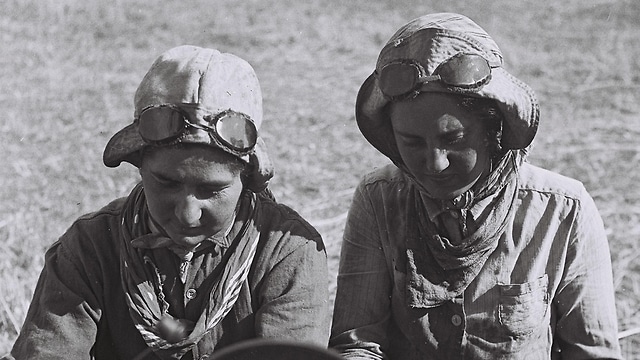Written by Rebecca Barabas If you follow the Hadassah Foundation on Facebook, you’ve probably seen our posts about the upcoming International Women’s Day. This year’s theme, #EachforEqual, is especially important to the Hadassah Foundation and our grantees. As the Foundation’s grantees and grant participants think about equality, we see different ways of viewing equality and different needs for equality in the American Jewish and the Israeli communities.
Increasing its significance, the Jewish holiday that most directly celebrates a woman comes on the heels of International Women’s Day this year. Purim explores the power dynamics between King Ahashveros and his wives, where we see the need for equality in antiquity. While Queen Vashti’s reaction to domestic abuse has JWI’s JCWLP program member and Maharat graduate Ruth Balinsky Friedman asking Who is the real hero of Purim and JWI CEO Meredith Jacobs proclaiming #IAmVashti.
Purim’s connection to gender is further explored in Maharat graduate Rabba Wendy Amsellem’s optimistic view of the Purim story, Back to the Garden: Purim, Patriarchy and a Path Forward. Rabba Amsellem writes: “Esther’s power is finally Esther’s power suggests a movement back towards a prelapsarian state in which men and women coexist equally and God interacts with humans freely and in a state of grace.”
As Purim and International Women’s day are celebrated, join us in being #EachforEqual.
Increasing its significance, the Jewish holiday that most directly celebrates a woman comes on the heels of International Women’s Day this year. Purim explores the power dynamics between King Ahashveros and his wives, where we see the need for equality in antiquity. While Queen Vashti’s reaction to domestic abuse has JWI’s JCWLP program member and Maharat graduate Ruth Balinsky Friedman asking Who is the real hero of Purim and JWI CEO Meredith Jacobs proclaiming #IAmVashti.
Purim’s connection to gender is further explored in Maharat graduate Rabba Wendy Amsellem’s optimistic view of the Purim story, Back to the Garden: Purim, Patriarchy and a Path Forward. Rabba Amsellem writes: “Esther’s power is finally Esther’s power suggests a movement back towards a prelapsarian state in which men and women coexist equally and God interacts with humans freely and in a state of grace.”
As Purim and International Women’s day are celebrated, join us in being #EachforEqual.
Female pioneers at Kibbutz Tel Amal (now Nir David) (Photo GPO)
EQUALITY IN OUR GRANTEES WORDS…
Equality in Israel
Founding head of the Rackman Center Ruth Halperin-Kadri writes about “the myth of the independent and free pioneer and the false notion that women were also equal in Israel” in One Hundred Years of Patriarchy. And as women are still fighting for equal rights today, Halperin-Kadri stresses that the Israeli suffrage movement is a vital part of its history. Center for Women’s Justice is working to help women in Israel obtain equality within marriage law. In this video (subtitled in English), CWJ’s Rabbi Leah Shakdiel teaches the history of the Jewish marriage law, based in slavery, that traps thousands of women as agunot.
Equality in Religion
In Behind the Veil of Tzniyut: Using Religious Modesty to Block Women as Ritual Leaders, Maharat’s President and co-Founder Rabba Sara Hurwitz writes about “how the interpretation of religious modesty has cultivated an underlying resistance to and exclusion of women assuming ritual leadership roles in Jewish synagogue life in Israel and America.” Rabba Hurwitz discusses the laws of tzniyut and why women should be welcomed into leadership positions in religious communities.
Equality in Action
Read what and Jewish Feminist Alumnae Network (alumnae of JWA’s Rising Voices Fellowship and jGirls) write about equality. In Why Feminism Needs Teenage Boys Emma Nathanson describes her reaction to learning that her male classmates did not identify as feminists and the need for male feminists in the fight for gender equity.

